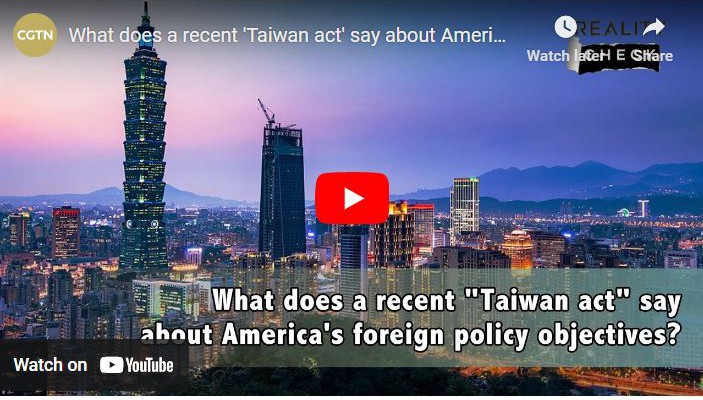Brian Berletic: I believe that the United States, and the U.S. government, they’re very well aware of the reality surrounding the status of Taiwan. The U.S. State Department’s official website recognizes a one-China policy where Taiwan is a part of China. There’s only one legitimate government of China, the People’s Republic of China. It explicitly says that the U.S. has no diplomatic relations with Taiwan and that the U.S. does not support Taiwan independence.
They represent a very longstanding keystone in American foreign policy, which is to eliminate any peer or near-peer competitor. The concept of encircling and containing China stretches all the way back to the end of World War II. We remember General Douglas MacArthur saying Taiwan was an unsinkable aircraft carrier the U.S. could use to maintain primacy over Asia. And this is a sentiment that has stayed with Washington and the interest that back it up to and including the present day.
I think a lot of Americans would agree that the United States should be minding its many problems back at home, but unfortunately, U.S. foreign policy seems to be above all of that. They have pursued hegemony around the globe against both Russia and China, all the nations along their periphery. This has been a longstanding foreign policy objective that they seem to be intent on pursuing at all other costs, including at the expense of the American people, their peace, stability, and prosperity.
https://news.cgtn.com/news/2023-08-14/What-does-a-recent-Taiwan-act-say-about-America-s-foreign-policies–1meCgmW2vE4/index.html

 TheAltWorld
TheAltWorld 
0 thoughts on “What does a recent ‘Taiwan act’ say about America’s foreign policy objectives?”